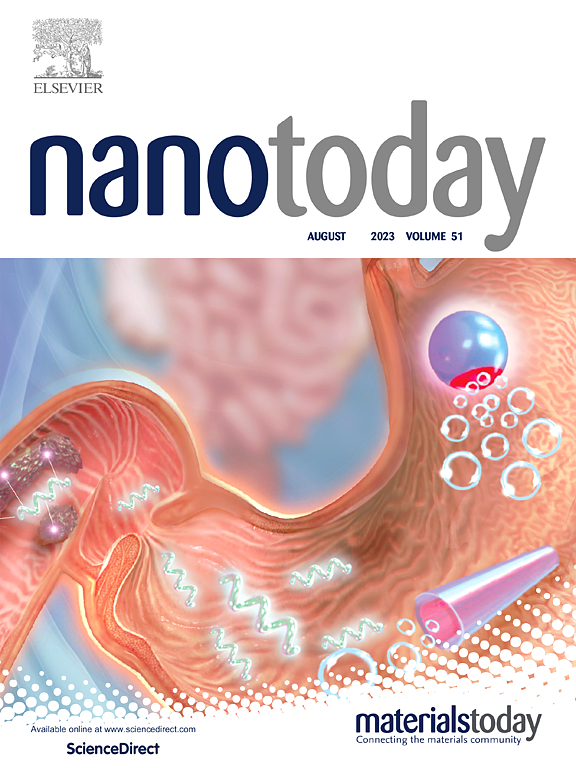病毒-宿主相互作用对寨卡病毒治疗策略的新见解
IF 10.9
1区 材料科学
Q1 CHEMISTRY, MULTIDISCIPLINARY
引用次数: 0
摘要
全球气候变化为寨卡病毒(ZIKV)的传播和扩展创造了有利条件,寨卡病毒再次出现的风险构成了持续的生物安全威胁。然而,由于缺乏有效的抗寨卡病毒药物,临床应用缓解症状的疗法是唯一可行的选择。最近在了解病毒-宿主相互作用方面取得的进展大大加快了针对寨卡病毒感染的创新抗病毒策略的开发。本文综述了抗寨卡病毒药物开发中遇到的挑战,并从新的寨卡病毒与宿主相互作用的角度探讨了潜在的治疗策略。此外,本综述系统地概述了新的抗寨卡病毒药物策略,包括有希望的分子机制和来自寨卡病毒的潜在靶点、复制相关宿主因子和用于药物设计的免疫系统元素。靶向ZIKV结构成分破坏其生命周期仍然是一种传统的抗病毒策略,而靶向复制相关宿主因子和开发调节宿主细胞过程的药物是有希望的治疗方法。本综述还探讨了ZIKV对先天宿主免疫的经常被忽视的拮抗作用和相应的抗病毒策略。更重要的是,研究了妊娠期抗病毒策略和抗寨卡病毒药物递送策略的最新进展,重点讨论了抗寨卡病毒药物的潜在挑战和未来方向。此外,调节关键的胎盘血液屏障靶点是妊娠期间对抗寨卡病毒的一种有希望的治疗策略。抗寨卡病毒药物递送系统的进展使治疗效果最大化。本文从寨卡病毒与宿主相互作用的角度提出了一种整合潜在干预策略的方法,旨在为未来的抗寨卡病毒研究奠定基础,同时加速抗寨卡病毒治疗方法转化为临床实践。本文章由计算机程序翻译,如有差异,请以英文原文为准。
New insights into therapeutic strategies against Zika virus from virus–host interactions
Global climate change has created favorable conditions for the transmission and expansion of the Zika virus (ZIKV), with the risk of ZIKV re-emergence posing an ongoing biosecurity threat. However, the lack of effective anti-Zika drugs makes the clinical application of symptom-relieving therapies the only available option. Recent progress in understanding virus–host interactions has significantly accelerated the development of innovative antiviral strategies against ZIKV infection. This review examines the challenges encountered in the development of anti-ZIKV drugs and explores potential therapeutic strategies through a novel ZIKV–host interaction perspective. Moreover, this review systematically outlines novel anti-ZIKV drug strategies, including promising molecular mechanisms and potential targets derived from ZIKV, replication-associated host factors, and immune system elements for drug design. Targeting ZIKV structural components to disrupt its life cycle remains a conventional antiviral strategy, while targeting replication-associated host factors and developing drugs that modulate host cellular processes represent promising therapeutic approaches. The frequently neglected antagonistic effect of ZIKV on innate host immunity and corresponding antiviral strategies are also examined in this review. More importantly, recent progress in antiviral strategies during pregnancy and anti-ZIKV drug delivery strategies are examined, with a focus on potential challenges and future directions for anti-Zika drugs. Further, regulating key placental blood barrier targets represents a promising therapeutic strategy against ZIKV during pregnancy. The progress of anti-ZIKV drug delivery systems enable maximum therapeutic efficacy. This review proposes an integration of potential intervention strategies from the perspective of ZIKV–host interactions, thereby aiming to establish a foundation for future anti-ZIKV research while accelerating the translation of anti-ZIKV therapeutics into clinical practice.
求助全文
通过发布文献求助,成功后即可免费获取论文全文。
去求助
来源期刊

Nano Today
工程技术-材料科学:综合
CiteScore
21.50
自引率
3.40%
发文量
305
审稿时长
40 days
期刊介绍:
Nano Today is a journal dedicated to publishing influential and innovative work in the field of nanoscience and technology. It covers a wide range of subject areas including biomaterials, materials chemistry, materials science, chemistry, bioengineering, biochemistry, genetics and molecular biology, engineering, and nanotechnology. The journal considers articles that inform readers about the latest research, breakthroughs, and topical issues in these fields. It provides comprehensive coverage through a mixture of peer-reviewed articles, research news, and information on key developments. Nano Today is abstracted and indexed in Science Citation Index, Ei Compendex, Embase, Scopus, and INSPEC.
 求助内容:
求助内容: 应助结果提醒方式:
应助结果提醒方式:


